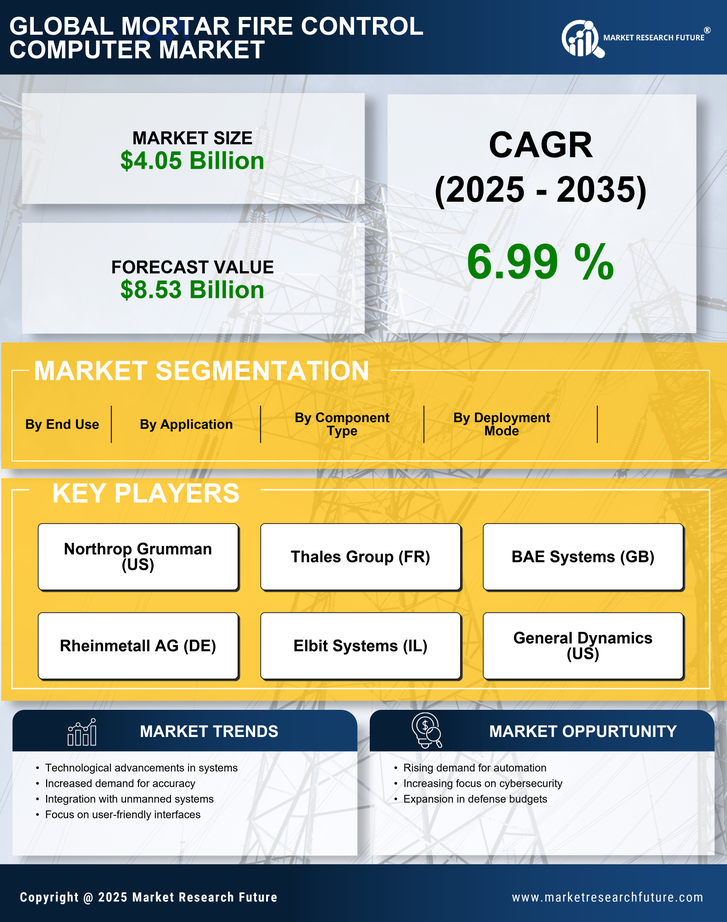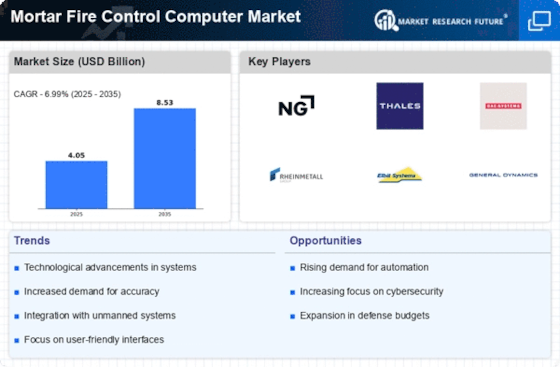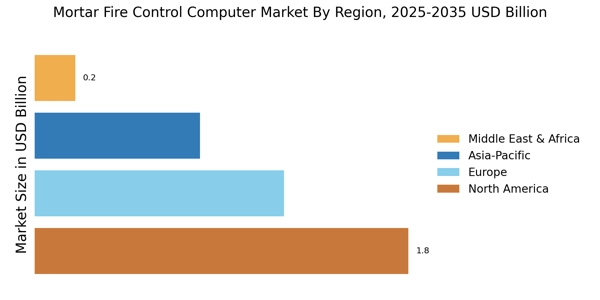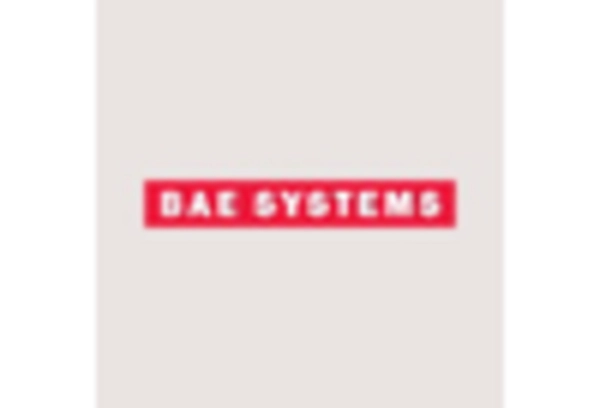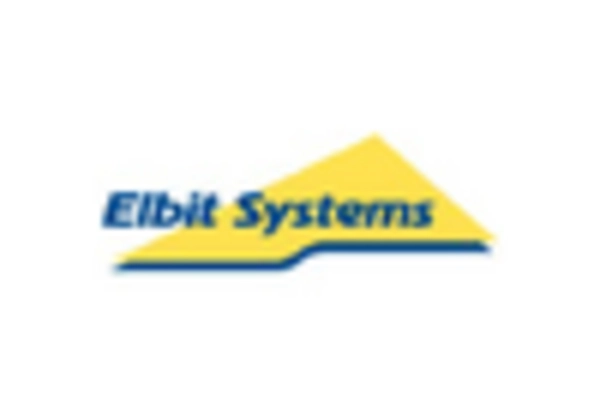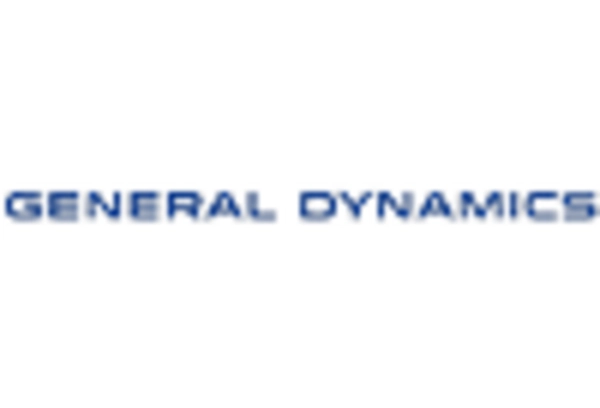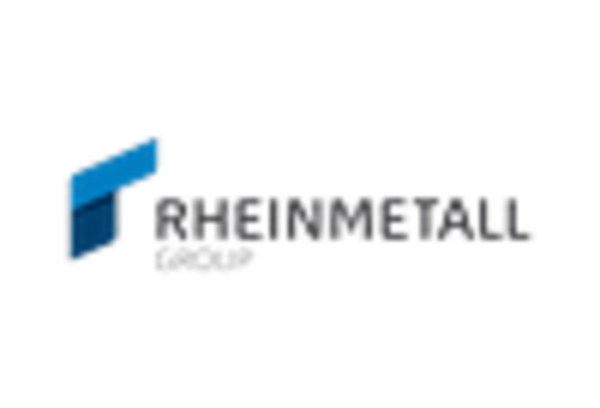Focus on Interoperability Among Defense Systems
Interoperability is becoming a critical factor in the Mortar Fire Control Computer Market, as military operations increasingly require seamless communication between various platforms. The ability to integrate mortar fire control systems with other defense technologies, such as drones and artillery systems, is essential for effective joint operations. This focus on interoperability is likely to drive innovation and collaboration among defense contractors, leading to the development of more versatile and adaptable systems. As nations engage in multinational exercises and operations, the demand for interoperable mortar fire control solutions is expected to grow, potentially expanding the market significantly.
Rising Geopolitical Tensions and Defense Spending
The Mortar Fire Control Computer Market is also being shaped by rising geopolitical tensions, which have prompted many countries to increase their defense spending. Nations are prioritizing the enhancement of their military capabilities in response to perceived threats, leading to a greater emphasis on advanced fire control systems. This trend is particularly evident in regions experiencing conflict or instability, where the need for precise and reliable mortar systems is paramount. Analysts predict that this increase in defense budgets will result in a robust market for mortar fire control computers, with potential growth rates reaching double digits in certain regions.
Emergence of Smart Munitions and Precision Warfare
The emergence of smart munitions is significantly impacting the Mortar Fire Control Computer Market. As military strategies evolve towards precision warfare, the integration of smart munitions with advanced fire control systems is becoming increasingly important. These munitions, which can adjust their trajectory mid-flight, require sophisticated targeting solutions that only modern mortar fire control computers can provide. The demand for such systems is likely to rise as militaries seek to minimize collateral damage while maximizing operational effectiveness. This trend suggests a promising future for the market, with potential innovations that could redefine how mortar systems are utilized in combat scenarios.
Increased Demand for Modernization of Military Equipment
The Mortar Fire Control Computer Market is significantly influenced by the ongoing demand for modernization of military equipment. Many armed forces are seeking to upgrade their existing systems to enhance operational effectiveness and maintain a competitive edge. This modernization trend is not only about replacing outdated technology but also about integrating new capabilities that align with contemporary warfare strategies. As a result, defense budgets are increasingly allocated towards advanced mortar fire control systems, which are seen as essential for precision strikes and improved battlefield coordination. Market analysis suggests that this demand could lead to a substantial increase in procurement contracts over the next decade.
Technological Advancements in Mortar Fire Control Systems
The Mortar Fire Control Computer Market is experiencing a surge in technological advancements, particularly in software and hardware integration. Enhanced algorithms and real-time data processing capabilities are being developed to improve accuracy and efficiency in mortar fire control. The introduction of artificial intelligence and machine learning is likely to revolutionize targeting systems, allowing for quicker decision-making and reduced human error. As nations invest in modernizing their military capabilities, the demand for advanced mortar fire control systems is expected to rise. Reports indicate that the market could witness a compound annual growth rate of over 5% in the coming years, driven by these innovations.
